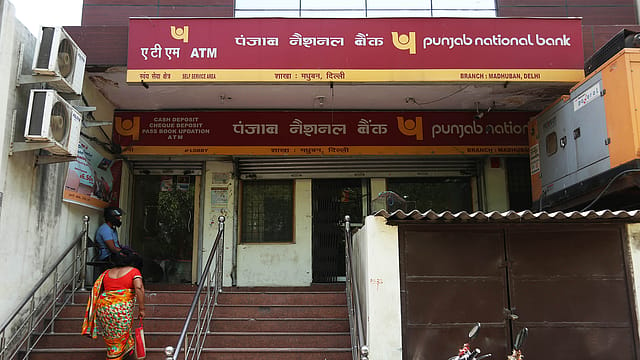OECD urges India to cut stake in banks, insurance firms
ADVERTISEMENT

The Organisation for Economic Co-operation and Development (OECD) urged the Indian government to reduce government ownership of banks and insurance companies, thereby promoting structural reforms in the financial sector.
The international body also suggested India enhance resilience in the financial sector by accelerating the Insolvency and Bankruptcy Code (IBC) process, managing non-performing assets, and providing appropriate government's supervision.
Despite the reduction in non-performing loans and the creation of an asset reconstruction company (so-called 'bad bank'), resolution procedures remain slow, says the OECD.
"Recent reforms reduce government participation in the finance sectors, allowing greater foreign participation in insurance, as well as defence, petroleum and natural gas, and telecoms. However, in the last few years private conglomerates have increased their role in the economy, with negative consequences for competition," the Paris-headquartered organisation says.
It also asked the Centre to further liberalise FDI by removing remaining restrictions and simplifying the government approval system. India should promote the creation of quality jobs by modernising labour regulations and skill development programmes, it says.
Despite high mobile telephony penetration and the success of public policies promoting digitalisation of government services finance, education, and health, as well as delivery of social services, large digital divides persist by location, gender, age, income and wealth, and firm size, says the OECD.
It recommended the government enhance access to affordable and secure high-speed broadband networks and services in rural areas and for micro, small and medium enterprises (MSMEs), and poor households. "Boost digital literacy and skills development through education and training, including among women and marginalised groups," says the OECD.
In climate transition, the OECD urges India to further increase the share of renewable energy by facilitating long-term investment in clean energy development projects. "Improve the performance of state-owned distribution companies (DISCOMs), so as to reduce the risks faced by private firms entering the renewable energy market to sell to DISCOMs," it says.
India should incentivise private sectors to adopt more energy-efficient and less carbon-intensive measures through carbon pricing, subsidies, technology dissemination, training, and capacity building, the international organisation says.
"India has committed to reduce greenhouse gas emissions and increase the share of renewable energy. Nonetheless, the energy mix is still highly dependent on fossil fuels and coal, the import bill has increased, and energy efficiency is low," says the OECD.
It also recommended the Indian government enhance social mobility by widening access to social services and infrastructure, especially ensuring equal access to high-quality education for all children at least from 6 to 14 for successful implementation.
"The 2022 Right to Education Act introduced the obligation to provide free and compulsory education for all children from age 6 to 14, but actual coverage is lower and quality is lagging behind," it says.